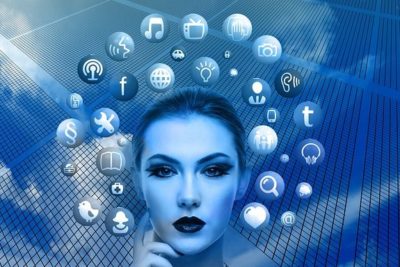
The Pros and Cons Debate of Social Media: Analyzing the Impact

Social media has become an integral part of our daily lives, with millions of people around the world using platforms such as Facebook, Instagram, and Twitter to connect, share, and communicate. While social media has undoubtedly revolutionized the way we interact and access information, it has also sparked a heated debate about its pros and cons. On one hand, social media has opened up new opportunities for businesses, enabled global activism, and provided a platform for self-expression. On the other hand, it has raised concerns about privacy, mental health, and the spread of misinformation.
In this article, we will delve into the ongoing debate surrounding social media, analyzing its impact on individuals, society, and the world at large. We will explore the positive aspects of social media, such as its ability to connect people from diverse backgrounds, facilitate the exchange of ideas, and empower marginalized communities. Additionally, we will examine the negative consequences, including the addictive nature of social media, cyberbullying, and the erosion of privacy. By examining both sides of the argument, we aim to provide a comprehensive understanding of the pros and cons of social media, allowing readers to form their own informed opinions on this complex and ever-evolving topic.
Index
Social media has become an integral part of our daily lives, connecting us with friends, family, and even strangers from around the world. It offers a multitude of advantages that have transformed the way we communicate, share information, and even conduct business.
One of the biggest advantages of social media is its ability to facilitate communication and foster connections. Platforms like Facebook, Twitter, and Instagram allow us to stay connected with loved ones, no matter where they are. We can easily share updates, photos, and videos, and engage in real-time conversations through comments and direct messages. Social media has made the world a smaller place, breaking down geographical barriers and enabling us to maintain relationships with people we might not have been able to otherwise.
Additionally, social media has revolutionized the way we consume and share information. With just a few clicks, we can access news articles, blog posts, and videos on a wide range of topics. This ease of access has democratized information, giving individuals the power to stay informed and share their perspectives on current events. Social media has also become a platform for citizen journalism, allowing ordinary people to report on events as they unfold, often providing a unique and unfiltered perspective.
Furthermore, social media has had a significant impact on businesses and the way they operate. It has become an essential marketing tool, allowing businesses to reach a wider audience and engage with customers on a more personal level. Social media platforms provide valuable insights into consumer preferences and behavior, allowing businesses to tailor their products and services to meet the needs of their target audience. It also offers a cost-effective way to advertise and promote products, making it accessible to businesses of all sizes.
However, despite its many advantages, social media also has its drawbacks. One of the main criticisms is the impact it can have on mental health. Constant exposure to curated and idealized versions of other people's lives can lead to feelings of inadequacy, low self-esteem, and even depression. The pressure to maintain a certain image and gain validation through likes and comments can be overwhelming, leading to a constant need for validation and comparison.
Another concern surrounding social media is the spread of misinformation and fake news. The ease with which information can be shared on social media platforms has made it a breeding ground for rumors, conspiracy theories, and false information. This has the potential to distort public opinion, sow confusion, and even have real-world consequences.
Additionally, social media can be a source of distraction and addiction. The constant notifications, updates, and the fear of missing out (FOMO) can lead to decreased productivity, difficulty focusing, and even addiction-like behaviors. Studies have shown that excessive social media use can negatively impact sleep patterns, relationships, and overall well-being.
It is important to approach social media with a critical eye, being mindful of its advantages and drawbacks. While it can facilitate communication, access to information, and business growth, it is essential to be aware of its potential negative impacts on mental health, the spread of misinformation, and personal well-being. By using social media responsibly and maintaining a healthy balance, we can harness its advantages while mitigating its disadvantages.
While social media has undoubtedly revolutionized the way we communicate and connect with others, it is not without its drawbacks. It is important to examine the negative aspects of social media and be aware of the potential harm it can cause.
One of the main disadvantages of social media is the impact it can have on mental health. Research has shown that excessive use of social media can lead to feelings of loneliness, anxiety, and depression. The constant exposure to carefully curated, idealized versions of others' lives can create feelings of inadequacy and low self-esteem.
Another concern is the spread of misinformation and fake news on social media platforms. With the ease of sharing and the viral nature of posts, false information can quickly spread like wildfire. This can have serious consequences, as people may make decisions based on inaccurate information.
Privacy is also a major concern when it comes to social media. Many users are not fully aware of the amount of personal information they are sharing online and the potential risks associated with it. From identity theft to cyberbullying, there are numerous ways in which privacy can be compromised on social media.
In addition, social media can be a breeding ground for cyberbullying and online harassment. The anonymity and distance provided by the internet can embolden individuals to engage in harmful behavior towards others. This can have devastating effects on the mental and emotional well-being of the victims.
Furthermore, social media can be a major time-waster. The addictive nature of scrolling through endless feeds and notifications can lead to decreased productivity and a loss of valuable time. This can negatively impact personal and professional goals.
Despite these disadvantages, it is important to note that social media also has its advantages. It allows for easy communication and connection with others, provides a platform for self-expression and creativity, and can be a valuable source of information and support.
However, it is crucial to use social media mindfully and responsibly, being aware of the potential negative effects it can have. By setting boundaries, limiting screen time, and being selective about the content we consume and share, we can minimize the disadvantages and maximize the benefits of social media.
Ultimately, the debate of social media's pros and cons continues, and it is up to each individual to navigate the digital landscape in a way that promotes well-being and positive engagement.
As social media continues to dominate our daily lives, there is an ongoing debate about its impact on society. Some argue that social networks have revolutionized communication, connecting people from different corners of the world and allowing for the exchange of ideas and information at an unprecedented rate. Others, however, raise concerns about the negative effects of social media, such as addiction, privacy issues, and the spread of misinformation.
On one hand, supporters of social media emphasize its numerous benefits. Platforms like Facebook, Twitter, and Instagram have made it easier for people to stay connected with friends and family, even when they are physically apart. Social media also provides a platform for individuals to express themselves, share their opinions, and engage in meaningful discussions on a wide range of topics.
Furthermore, social media has become an integral part of many businesses' marketing strategies. It offers a cost-effective way to reach a larger audience and target specific demographics. Companies can also use social media to gather customer feedback, improve their products or services, and build brand loyalty.
However, critics of social media argue that it has led to a decline in face-to-face interactions and interpersonal skills. Spending excessive time on social networks can result in feelings of isolation and loneliness. Moreover, the constant exposure to carefully curated and filtered content can lead to feelings of inadequacy and low self-esteem.
Another major concern is the impact of social media on mental health. Studies have shown a correlation between the use of social media and increased rates of anxiety, depression, and sleep disturbances. The constant comparison to others' seemingly perfect lives and the pressure to present oneself in a certain way can have a detrimental effect on individuals' well-being.
Additionally, the spread of misinformation on social media platforms has become a growing concern. False information can quickly go viral and influence public opinion, leading to real-world consequences. The lack of regulation and fact-checking on social media makes it difficult to discern between truth and falsehoods.
Despite these criticisms, it is important to recognize that social media is a tool that can be used for both positive and negative purposes. It is up to individuals to use social media responsibly, being mindful of their online behavior and the potential consequences.
In conclusion, the debate over the favor and against of social networks is ongoing. While social media has undoubtedly changed the way we communicate and interact, it is crucial to consider both the benefits and drawbacks. Striking a balance between staying connected and maintaining mental well-being is key. Ultimately, the impact of social media depends on how it is used and the individual's ability to navigate and manage its influence.
Social media has become an integral part of our daily lives, revolutionizing the way we communicate, interact, and share information. However, there has been an ongoing debate about the pros and cons of social media, as its impact on society and individuals is a topic of concern.
On one hand, social media has undoubtedly brought numerous benefits. It allows us to connect with friends and family around the world, bridging the distance and fostering relationships. It provides a platform for expressing our thoughts, opinions, and creativity, giving a voice to those who may have been marginalized in the past. Social media also facilitates the sharing of information and knowledge, enabling us to stay updated on current events, trends, and ideas.
However, there are also valid concerns about the negative effects of social media. One of the main criticisms is the impact it has on mental health. Studies have shown that excessive use of social media can lead to feelings of loneliness, depression, and anxiety. The constant exposure to carefully curated, idealized versions of other people's lives can create feelings of inadequacy and low self-esteem. Moreover, the addictive nature of social media can lead to a decrease in productivity and a waste of valuable time.
Another major concern is the spread of misinformation and fake news on social media platforms. With the ease of sharing and the lack of regulation, false information can quickly go viral, leading to confusion and manipulation. This can have serious consequences, ranging from influencing public opinion to inciting violence or spreading fear.
Privacy is also a significant issue when it comes to social media. The collection and use of personal data by social media companies have raised concerns about data breaches and the potential misuse of information. Additionally, social media can expose individuals to cyberbullying, online harassment, and invasion of privacy.
It is important to note that the debate surrounding social media is not black and white. There are undoubtedly positive aspects that have transformed the way we communicate and connect. However, it is crucial to be aware of the potential negative impacts and take steps to mitigate them. This includes setting boundaries for social media use, being mindful of the information we consume and share, and advocating for stricter regulations to protect user privacy and combat misinformation.
Overall, the debate of social media's favor and against is a complex and nuanced discussion. It is essential to weigh the benefits and drawbacks and make informed decisions about our social media usage. By understanding the impact of social media on society and individuals, we can navigate this digital landscape responsibly and harness its potential for positive change.
Frequently Asked Questions
1. What are the pros of social media?
Social media allows for instant communication, networking, and access to a wealth of information.
2. What are the cons of social media?
Social media can lead to addiction, privacy concerns, cyberbullying, and information overload.
3. How does social media impact mental health?
Excessive use of social media has been linked to increased feelings of depression, anxiety, and loneliness.
4. Can social media be used for positive purposes?
Absolutely! Social media can be a powerful tool for raising awareness, promoting social causes, and connecting people globally.
 Pros and Cons of WhatsApp: A Comprehensive Analysis
Pros and Cons of WhatsApp: A Comprehensive Analysis The Pros and Cons of Internet Connectivity: Exploring Benefits and Drawbacks
The Pros and Cons of Internet Connectivity: Exploring Benefits and DrawbacksSi leer artículos parecidos a The Pros and Cons Debate of Social Media: Analyzing the Impact puedes ver la categoría Industry and Business.






Leave a Reply